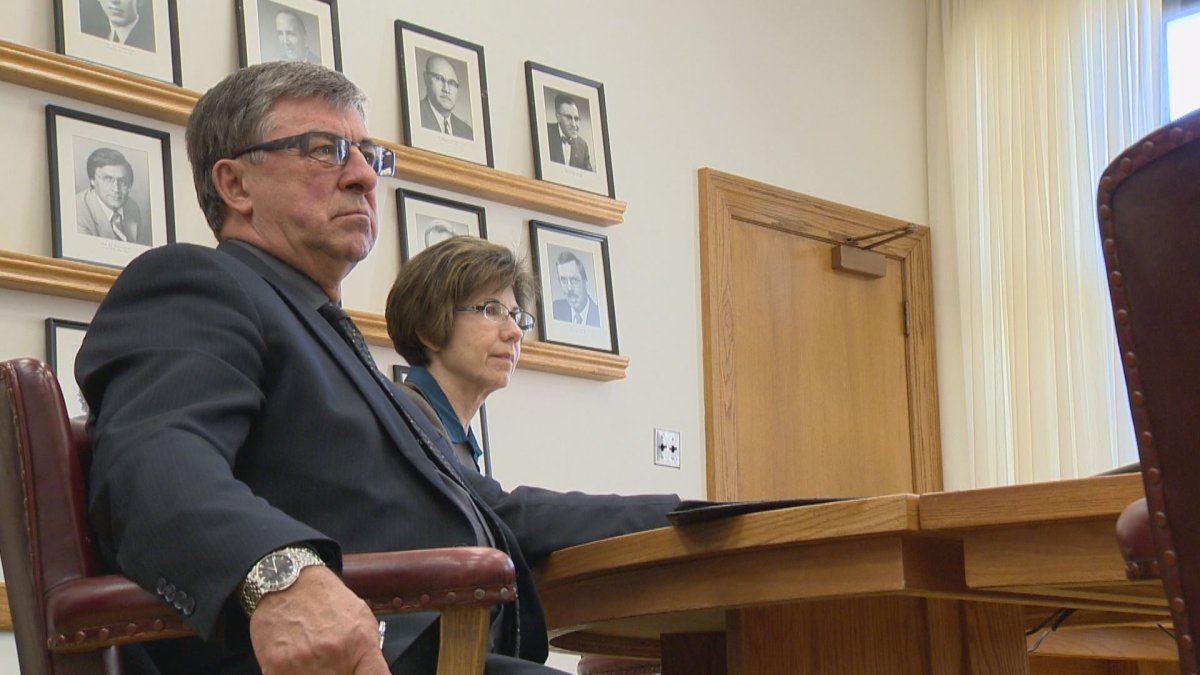Regina – Tuesday was federal finance minister Joe Oliver’s time to shine as he delivered the 2015 budget, but he was under the watchful eye of long-time provincial finance minister, Ken Krawetz.

Krawetz watched from the legislature Tuesday afternoon, and was given one hour before he debriefed with reporters on the subject, which didn’t seem to be a tough task.
“There weren’t many surprises,” said Krawetz.
He was hoping this budget would mirror his own efforts to control spending and move towards balance, which it did.
Krawetz foresees our small business owners benefiting from a new measure that will reduce the effective tax rate on businesses with less than $500,000 in sales to 9 per cent from the current 11 per cent.
The move will ease the tax burden on roughly half of the private sector companies, experts say – but also help line the pockets of already high income earners who own their own small businesses, such as small consultancies like those owned by doctors or other professionals.
When it came to infrastructure though, Krawetz was hoping for more. The Building Canada fund didn’t see any new money, but rather reaffirmed the government’s previous commitment, which allots Saskatchewan $43 million.
“The distribution of dollars through the Building Canada Fund limited the amount of dollars that Saskatchewan was going to receive,” said Krawetz. “We thought we’d be betting more, but that’s what have to work with, and so we’re going to ensure we continue with infrastructure development.”
Regina’s mayor, Michael Fougere, shares similar concerns.
- Budget 2024 failed to spark ‘political reboot’ for Liberals, polling suggests
- Train goes up in flames while rolling through London, Ont. Here’s what we know
- Peel police chief met Sri Lankan officer a court says ‘participated’ in torture
- Wrong remains sent to ‘exhausted’ Canadian family after death on Cuba vacation
What new spending there is for infrastructure, won’t come down the pipes for at least a couple of years. Most of the infrastructure promises hinge on the Conservatives winning the next election.
Fougere was happy to see a $750 million investment for a new public transit fund, but will have to wait and see if Regina qualifies. The fund won’t come into effect for two more years. The initial investment would be spread over two years, then jump to $1 billion per year going forward.
And, although the funding is earmarked for 2017-18, there is a strong likelihood that federal funds will require partnerships with the private sector as well as a submission process, two impediments that could delaying money getting out the door and into municipal projects.
“We’ve been saying for a couple of years that the money should flow earlier,” said Fougere. “It is back ended for several years, and the direct impact for municipalities is limited.”
“The province will partner when money is available, but it all starts with the federal government announcing on a national basis what they’re going to do. The fact that it’s pushed back a couple years means work that needs to get done, isn’t going to get done as fast as it should,” said Fougere.
Fougere also noted that new supports for affordable housing and First Nations housing projects look promising, but again, we won’t know if we qualify for the fund until 2017.




Comments